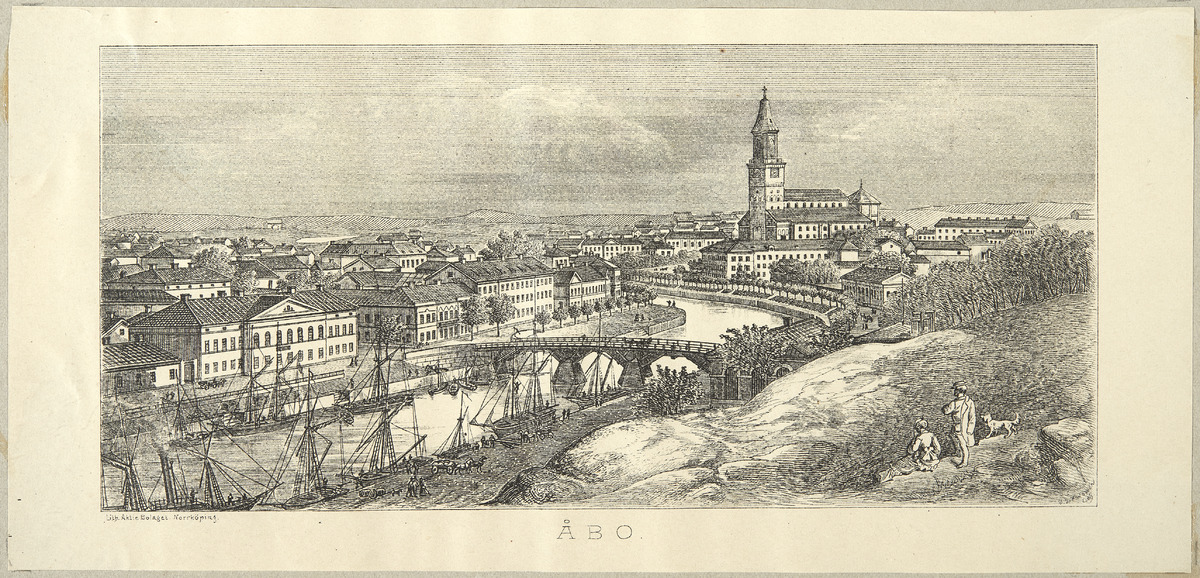This is the opening course of the Futures Studies Master's Programme.
- Opettaja
Toni Ahlqvist
This is the opening course of the Futures Studies Master's Programme.
Objectives
Students get familiar with origins, key concepts, schools of thought, historical developments, current debates, and relevant actors in the field of futures studies on a level that they can articulate an analytical overview of the field. Students can reflectively discuss the starting point of contemporary futures studies: a predetermined future does not exist, and human decisions influence how the future unfolds. Students can distinguish between possible, probable, preferred and plausible futures. They can identify assumptions underlying images of the future and ways of studying futures, examine their conceptual lineages, and critically discuss their implications.
The course will educate students in following generic working life skills: analytical thinking and critical thinking. The course also gives the basics of futures skills, especially in imagining alternative futures.
The course introduces theory and methods for understanding systems as conceptual and analytical tools in Futures Studies. An overview is given of varied types of systems, from technical to sociocultural, and the different types of systems approaches most suitable for working with them. Tools for mapping and describing systems are introduced. Important aspects of complex systems, including self-organisation, emergence, anticipation, and unpredictability are considered in light of their implications for futures research.
Students understand systems as an analytical perspective and a tool. They are able to see the relevance of systems thinking for futures studies, including in the form of specific traditions like systemic foresight. Students grasp the basics of a variety of systems theories and their linkages to different theoretical traditions, such as technical systems, innovation systems and complex adaptive systems. Students understand that complexity gives some systems particular characteristics that make their behavior challenging to anticipate and manage. Students examine the futures studies approaches that can deal with these qualities.
Hei,
tarvitsisin kiireellisesti kopion viime vuoden kurssista, jota editoin tämän vuoden kurssiksi. Viime vuoden kurssi täällä:
https://moodle.utu.fi/course/view.php?id=22986
Pahoittelut kiireestä,
Petri Tapio
The course depicts selected societal, socio-technical and cultural
transformation theories, and reflects their premises and outcomes about
cultural and societal change against the theoretical traditions of
futures research. The course catalyses discussion of the role of theory
and theory-building in futures studies. Specific theories of
transformation are taught (e.g. K-waves, evolutionary economics,
cultural transformation, and multi-level perspective on socio-technical
change) and the role of agency in these theories. In relation to these,
the course takes a deeper look into the various theoretical traditions
of futures research (e.g. critical futures research, utilitarian
dimensions) as well as the lineage of key futures studies concepts.
Students encounter recent debates about the development of theoretical
bases for futures studies, such as anticipation and the futures literacy
framework.
The course unravels varied theoretical frameworks and methods of
technology foresight, technology assessment and future-oriented
technology analysis. The key concepts and historical trajectories of
technology foresight are depicted and critically reflected upon. During
the course, students will analyse selected emerging technology cases.
The case analyses show how strategic futures thinking and innovation
practices are connected to technological development, and how different
spatial and organisational contexts affect emergence of technologies.
The case analyses will be presented in a seminar at the end of the
course.
The course takes a look into the field of strategic foresight through theories, methods and practical applications. The concepts and origin of strategic foresight are explained and reflected. Students are given cases to understand how systematic futures thinking enables corporations to set and pursue strategic goals. During the course students perfom a team work where teams tackle actual foresight case identified by a partner company.

After the course the student can apply most common SNP-genotyping
methods in practice and masters their molecular basis. Student can
describe DNA-methylation based epigenetic regulatory mechanism and can
analyse results obtained in laboratory and to draw conclusions from
them. Student knows how to prepare and color chromosome preparations for
human karyotypic analysis.Student knows the basics of genetic
association analysis and can do quality control and basic testing
independently.
Planning of timing and practical implementation of work strengthens
capabilities for independent work in molecular biology or cell culture
or chromosome laboratory for those planning for hospital geneticists.
Game theory is a branch of applied mathematics developed for understanding interaction between individuals (players) in strategic situations. The overall goal of game theory is to create adequate models to analyze mathematically phenomena of social behavior. This course provides an introduction to game theory with an emphasis on mathematical modeling of various situations and applications to economics. Moreover, the course presents the foundation of the theory and the interpretation of the main concepts as well as analyzing connections to other branches of applied mathematics such as multicriteria optimization and decision making. Among those topics to be covered are strategic games, Nash equilibrium, games with perfect and imperfect information, coalitional games, and some others.


Objectives
The course aims at deepening students understanding and practical skills of geospatial data management, including data capture, maintenance, updating, quality assessment, data sharing and visualization.
After completing the course, the students will:
- have scientific and practical understanding of the importance of geospatial data management and geovisualisation to support culture of open science and open data sharing.
- have practical skills in geospatial data capture, maintenance, updating, quality assessment, data sharing and visualization, and capabilities of automating geospatial data processes and analyses using for example QGIS, Python, JypyterLab, GitHub, Geoserver and Geonode.
- have skills in using standardized methods of data management and data quality assessment and applying their skills in the assessment of different types of geospatial data sets
- have improved geovisualization skills and confidence in visualizing data for different end-users
- have improved scientific and work life skills in group working, problem-solving, writing, presenting, argumenting and reporting results in English
Objectives
Upon completion of the course, student is able to apply research methods on his/her area of specialization to conduct an independent research work that follows good scientific practice. Student is able to choose and formulate a research problem and develop a research plan for conducting his/her study. Student can describe and analyze previous research connected to the research problem and select an appropriate research method for the study. Student can apply the selected research method to collect data, and to critically analyze and report the research results. Student can identify the most significant research findings and communicate them both in writing and orally.


The course covers the practices of green programming and related concepts. It explores how to measure and optimize system energy consumption as part of software development. The goal is for the student to be able to identify key factors of energy consumption in a web application, apply their learning as part of a software development project, and design software systems to be energy-efficient after completing the course.
Guidance and counselling course for IB-students 2025-2028.
Content
This course serves as an introduction to contemporary research concerning the historical development of Turku. It provides students with a comprehensive understanding of urban life spanning from the Middle Ages to the present day, utilizing Turku as a case study to illustrate key concepts and themes.

A small course for one credit, about pedagogy for university teachers.
This course targets doctoral and early-career researchers in legal sciences. The course organisers have noticed an unfamiliarity among the target group regarding the nature of argument-driven articles, which are the standard format for articles in highly-ranked international law journals. Simultaneously, much of the practical knowledge regarding article drafting, redrafting and peer-reviewing remain “silent knowledge” within the faculties. As such, many senior faculty members possess valuable knowledge but do not necessarily get a chance to share it with younger peers outside of direct supervisory relationships.
This course is an attempt to redress this issue through identifying, addressing and critically assessing the practical stages involved in writing a journal article. The course aims to utilise the knowledge available in a way that is advantageous both for the direct target group (early-career researchers) and for more senior academic staff. Furthermore, the course teaches the participants to engage in a constructive review of their own writing as well as that of their peers.
Participants are asked to draft and work on an article during this course. The expectation is that each participant has an article ready for submission by the end of the course – which will form part of the assessment. The course involves working individually, in smaller and bigger groups.

This short course is intended for early career researchers from BSc to postdoc level. It introduces the recommended procedure for preparation of research manuscript towards publication, and guides the researcher through different stages of this process.
After the course, the participants will be able to:
The course is organised as part of Sustainable Materials and Manufacturing (SUSMAT) research initiative, a UTU Profiling Area (Profi 7).

